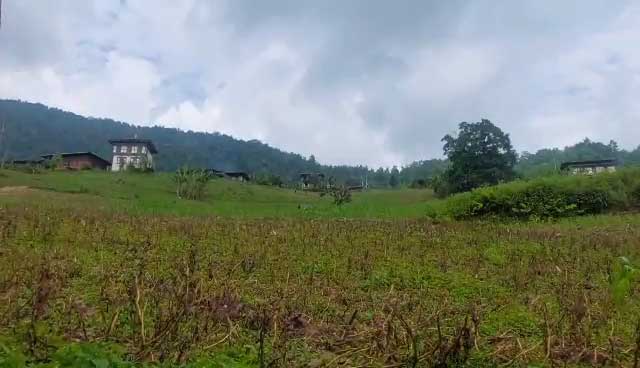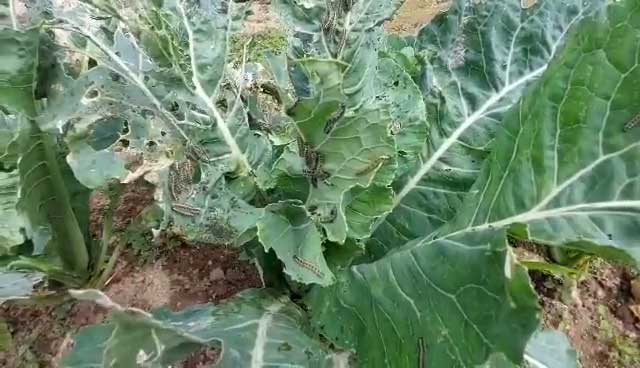
After armyworms started infesting potato fields in Muhung under Shermung Gewog in Monggar, the farmers are counting their losses. The presence of the migratory pests since the beginning of the month has already destroyed an estimated ten acres of potato fields.
Of the 72 households affected, three in Damtsang village have lost almost all of their yield to armyworms.
This is the first time the gewog is experiencing armyworm infestation. And this has worried the farmers. Some say the yield will only be enough to be used as seed potato next season.
“We are worried about the potato yield this year. I use the income earned from selling potatoes to cover the school expenses of our children. I think I will have to even buy seed potatoes for next year. The armyworms have damaged my potato badly,” said Muku Lhamo.
“It’s disheartening. When we are about to harvest, it got destroyed. It doesn’t matter how much effort you put in, you don’t get the expected result anyway. Our hard work is not paying off,” added Sangay.
“There was no such incident in the past and we used to earn about Nu 85,000 in a year. Now that our crop is damaged, I don’t know if I have even 20 bags,” said Sonam.
“Potato is the main source of income for us. This year the worms affected our crop. We don’t have any other source of income now,” said Kuenzang.
 Until last year, each household sold more than 30 bags of potatoes on average. The farmers earned around Nu 30,000 to Nu 100,000. The worms have also started attacking maize plants and other vegetables, distressing the farmers even more.
Until last year, each household sold more than 30 bags of potatoes on average. The farmers earned around Nu 30,000 to Nu 100,000. The worms have also started attacking maize plants and other vegetables, distressing the farmers even more.
The gewog agriculture extension has inspected the damages and distributed pesticides immediately. The office says some farmers are reluctant to spray the chemicals. And the past few days, the rain and the pesticide have helped reduce the damage.
Some other gewogs such as Monggar, Chhali, Chaskhar and Ngatshang have also reported armyworm attacks.
Armyworm infestation has become a serious challenge to the Bhutanese farmers for a couple of years now. Some international research shows that outbreaks of pests and diseases are major impacts of climate change on the agriculture sector.
Sonam Tshering, Monggar
Edited by Sangay Chezom








